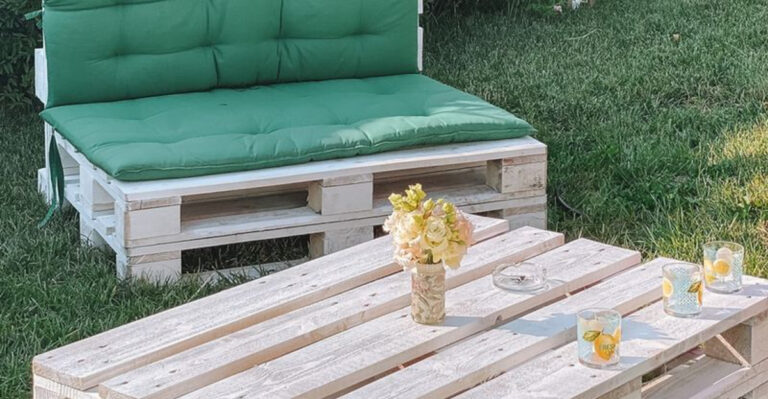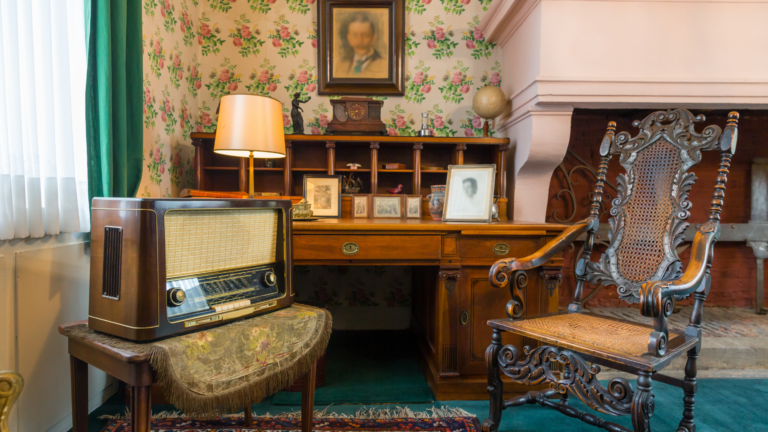18 Things That Feel Illegal To Declutter, And Why It’s OK To Let Them Go
Decluttering always starts off feeling great, until I get to those things that stop me in my tracks. You know the ones. Tucked in a drawer, untouched for years, but somehow packed with guilt.
I’ve stared at old gifts, broken gadgets, and just in case stuff more times than I can count. But here’s what I’ve learned: holding on doesn’t always equal holding value. Sometimes the real freedom comes in letting go.
If your home feels heavy with things you can’t quite part with, these 18 items might be exactly what it’s time to finally release, and trust me, it feels good.
1. Greeting Cards From Loved Ones
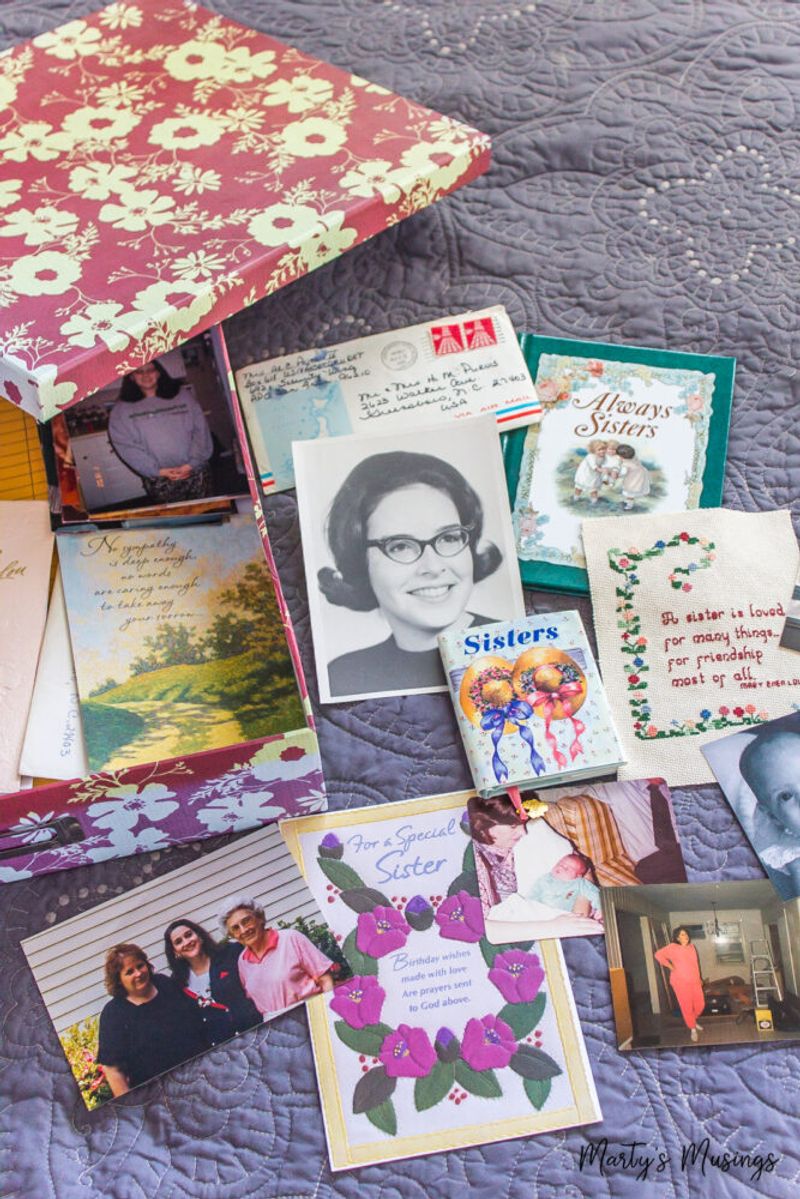
The pile grows taller every birthday and holiday. Cards from grandma, your college roommate, and that neighbor who moved away years ago. Their thoughtfulness touched you, but now they’re just taking up drawer space.
If you feel guilty tossing them, snap photos of your favorites first. Remember, the sentiment lives in your heart, not in the paper. The person who sent it would probably be horrified to know their card was causing you stress!
2. Books You’ll ‘Someday’ Read
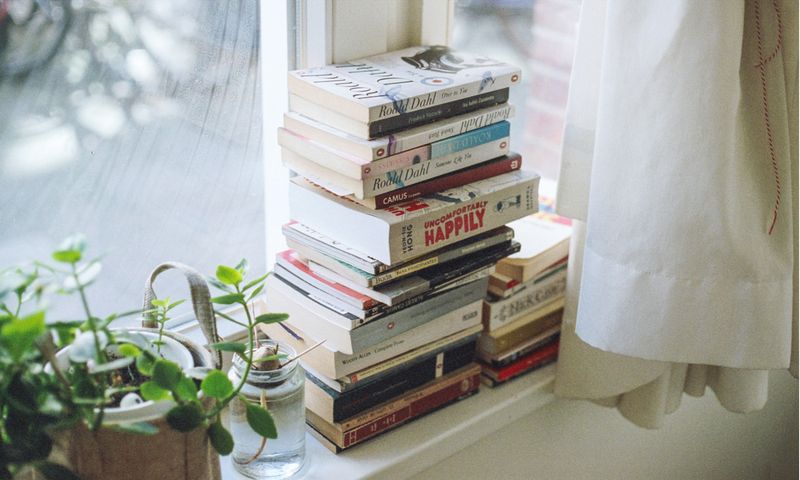
Those unread books stare accusingly from your shelves. You bought them with good intentions, but let’s be honest – if you haven’t read them in a year, will you ever?
Books are meant to be read, not collected as trophies of your intellectual aspirations. Someone else could be enjoying those stories right now!
Libraries exist for a reason, and if you suddenly develop an urgent need to read that philosophy tome, you can always borrow it.
3. Children’s Artwork
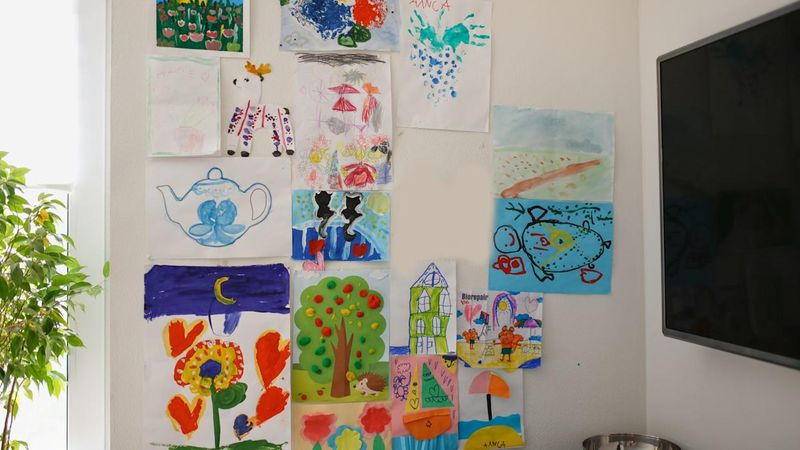
Little Johnny’s kindergarten masterpieces multiply faster than rabbits. Every scribble feels precious when it comes from tiny hands you love.
Though parting with kids’ artwork feels like betraying their creativity, keeping every single piece is impractical. Select a few favorites to frame, photograph the rest, and create a digital album.
Your child won’t remember that purple dinosaur drawing from three years ago, but they will appreciate growing up in a home that isn’t drowning in paper.
4. Gifts You Never Liked

Aunt Martha’s porcelain cat collection sits gathering dust on your shelf. You smile politely whenever she visits, but inside you’re cringing at these items that clash with your taste and home.
Keeping gifts out of obligation honors neither you nor the giver. Most gift-givers want to bring joy, not burden.
If something doesn’t serve you, passing it along to someone who’ll appreciate it transforms an unwanted item into a blessing for someone else.
5. Old Photographs And Negatives
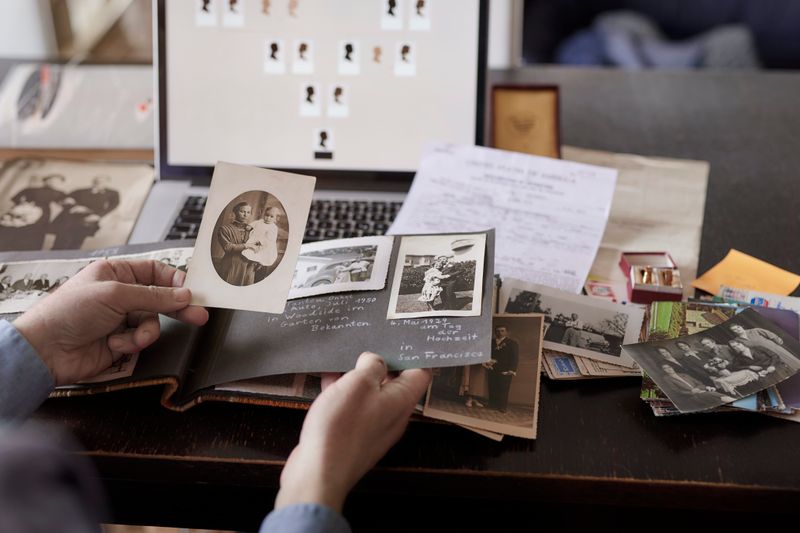
Shoeboxes of faded photos from the ’90s sit in your closet. You haven’t looked at them in years, but throwing away memories feels criminal.
Photos capture moments, but they aren’t the moments themselves. Scan the truly meaningful ones and create a digital archive that’s easier to share and won’t yellow with age.
Your great-grandchildren will thank you for curating rather than hoarding – they’d rather see 20 fantastic photos than sort through 2,000 mediocre ones.
6. Outdated Electronics
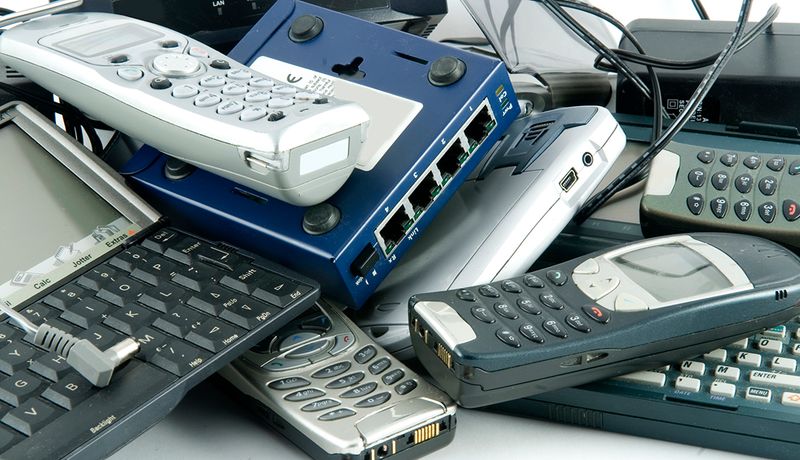
If your drawer resembles an electronics museum with Nokia phones and iPod Nanos, you’re not alone. Technology evolves faster than we can keep up, leaving digital graveyards in homes everywhere.
Those devices served their purpose in their time. Now they’re just collecting dust and potentially leaking batteries. Many electronics stores offer recycling programs that safely dispose of components.
Plus, clearing out that drawer makes room for whatever new gadget is about to change your life!
7. Broken Items You Intend To Fix
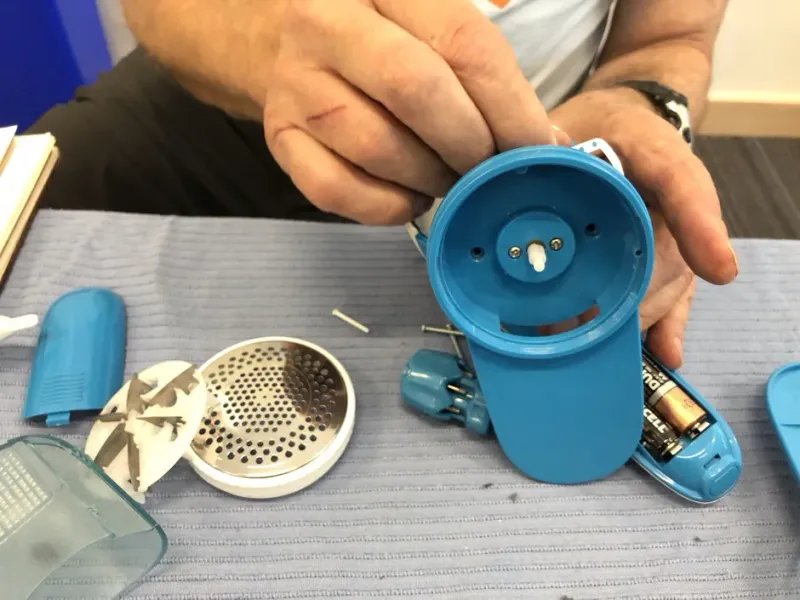
That lamp needing rewiring has been sitting in your garage for three years. You keep telling yourself you’ll fix it next weekend, but somehow “next weekend” never arrives.
Holding onto broken items creates a silent to-do list that looms over you. Be honest about your priorities and skills. If you haven’t fixed it by now, you probably won’t.
Either schedule a specific repair day within the month, take it to a professional immediately, or thank it for its service and let it go.
8. Sentimental Clothing That Doesn’t Fit

Your prom dress hangs in the back of your closet, two sizes too small and twenty years out of style. The memories attached make it impossible to toss, though you’ll never wear it again.
Clothes are meant to be worn, not preserved as fabric time capsules. Take a photo wearing it one last time or cut a swatch to keep in a memory box.
Someone else could make new memories in that garment, while you free up space for clothes that actually serve your current life.
9. Inherited Items You Feel Obligated To Keep

Grandma’s china set takes up an entire cabinet. You’ve never used it, don’t particularly like it, but feel terrible about getting rid of a family heirloom.
Inheritance shouldn’t feel like a burden. Your relatives wanted to pass down items they valued, not create guilt-inducing clutter in your home.
Keep what genuinely resonates with you and find good homes for the rest. Other family members might actually love that china set you’ve been reluctantly storing.
10. Hobby Supplies For Abandoned Projects
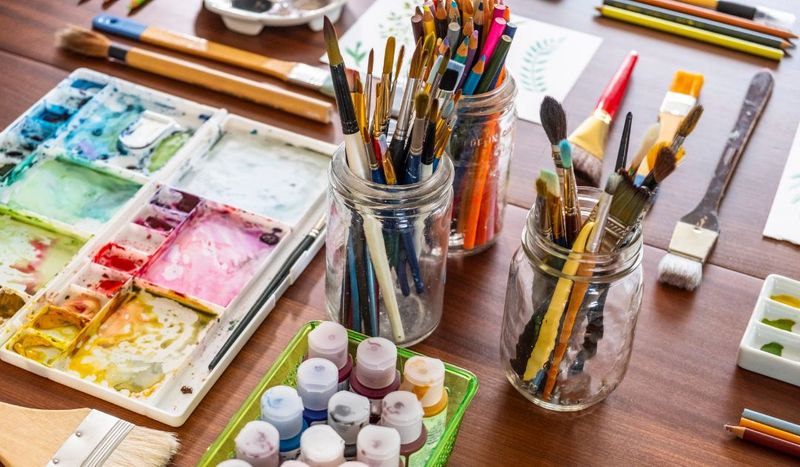
Your craft corner overflows with supplies for hobbies you tried once and abandoned. Yarns, paints, scrapbooking materials – all purchased with enthusiasm that quickly faded.
Failed hobbies aren’t personal failures; they’re experiments in finding what truly brings you joy. Those unused supplies represent possibility for someone else just discovering their passion.
Donate them to schools, community centers, or online marketplace where fellow crafters will treasure your castoffs.
11. Expensive Items You Never Use
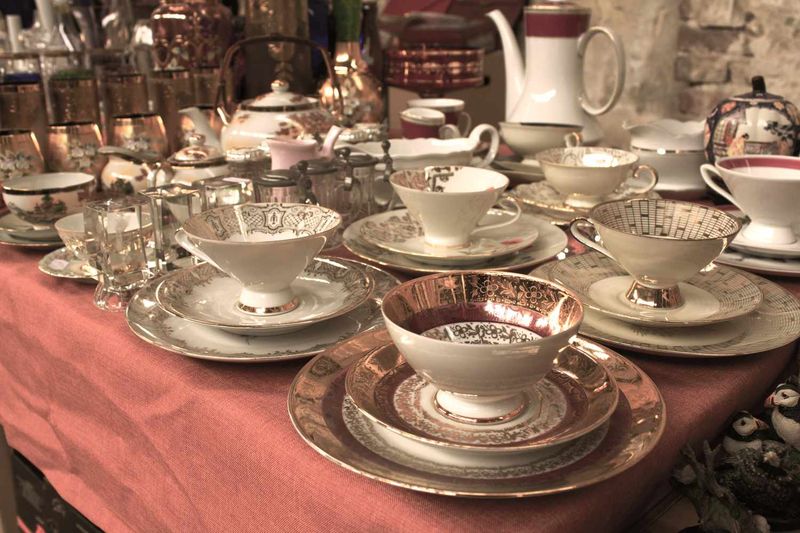
That fancy juicer cost a small fortune but sits gathering dust after your health kick fizzled out. The price tag makes you keep it, though you know you’ll never use it again.
Money spent is already gone, whether you keep the item or not. Continuing to store something unused doesn’t recover your investment – it just costs you space and peace of mind.
Selling it recoups some money and frees you from the daily reminder of an impulse purchase.
12. Old Schoolwork And Notes

Folders of college essays and high school math notes fill your storage bins. You worked hard on them, and throwing away evidence of your education feels wrong.
Your knowledge lives in your mind, not in those papers. The education they represent has already served its purpose in shaping who you are today.
Keep a few exemplary pieces if they truly matter to you, but release yourself from archiving every worksheet from Algebra II.
13. Collections You’ve Lost Interest In
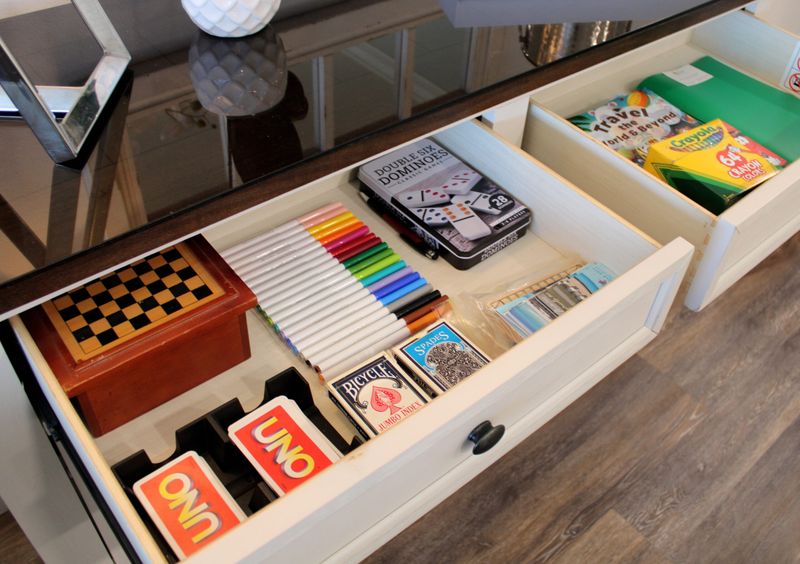
Your shelves groan under the weight of snow globes from every city you’ve visited. What started as a fun hobby now feels like an obligation whenever you travel.
Collections should bring joy, not obligation. If dusting those items has become a chore rather than a chance to admire them, it’s time to reconsider.
Keep your absolute favorites as representatives of the whole collection, and let the rest go to collectors who will appreciate them.
14. Old Journals And Diaries

Stacks of journals chronicle your angst-filled teenage years and college relationships. They’re deeply personal, which makes them both precious and uncomfortable to revisit.
Your past helped shape you, but you don’t need to preserve every thought you ever had. Consider reading through them one last time, transcribing particularly meaningful passages, then releasing the physical objects.
Some people find ceremonially burning old journals particularly cathartic – a literal release of past struggles.
15. Duplicate Kitchen Items
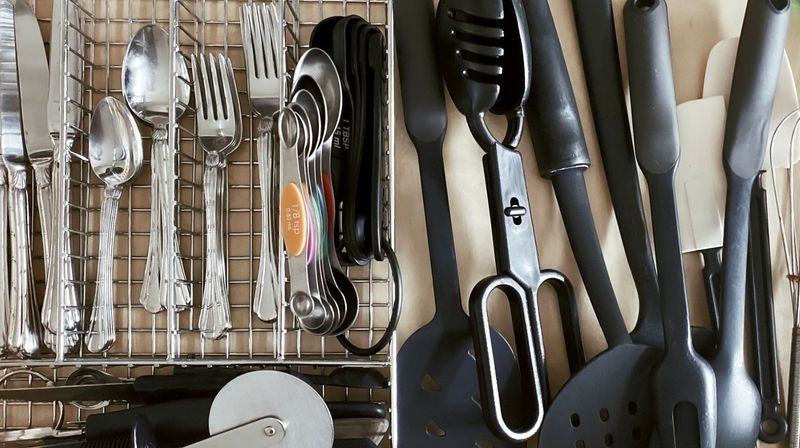
Somehow you’ve acquired three potato peelers, two blenders, and four sets of measuring spoons. Each time you open your kitchen drawers, the duplicates fight for space.
One good tool serves better than three mediocre ones. Select the best version of each item and pass the others along.
Your cooking experience will improve with an organized kitchen where you can actually find what you need. Plus, someone else gets to enjoy those perfectly functional extras.
16. Travel Souvenirs
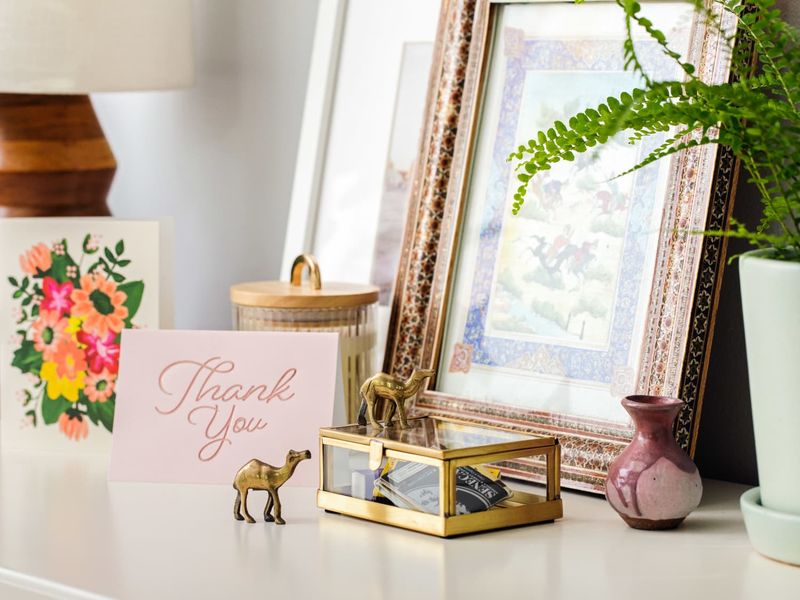
Mini Eiffel Towers crowd your shelves, each representing a wonderful trip. The memories feel tied to these trinkets, making them difficult to part with.
Souvenirs often lose their magic once home. Your memories live in your experiences, photos, and stories – not in mass-produced trinkets.
Keep only the most meaningful items that genuinely enhance your space. For future trips, consider collecting photos or journal entries instead of objects.
17. Old Calendars And Planners
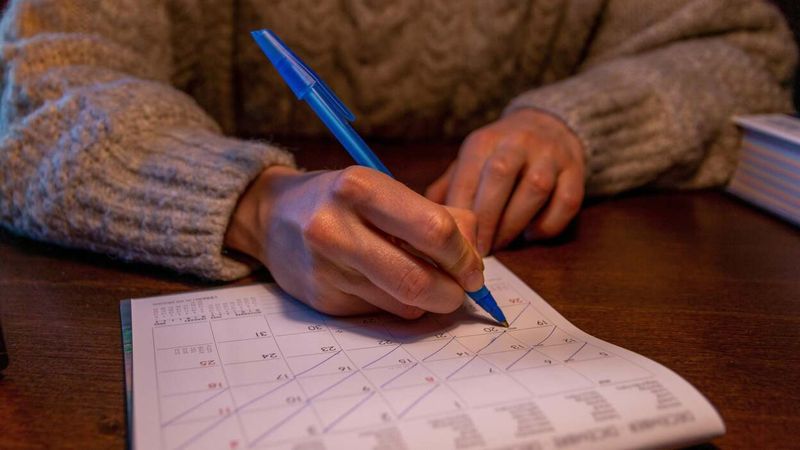
Those pretty planners from years past document appointments, birthdays, and life events. They tell the story of your past, which makes tossing them feel like erasing history.
Old calendars serve no practical purpose once their year has passed. If specific dates matter, transfer that information to a digital archive or journal.
Your life’s story isn’t contained in appointment books – it’s in your memories, relationships, and growth. The space those planners occupy could hold tools for planning your future instead.
18. Instruction Manuals
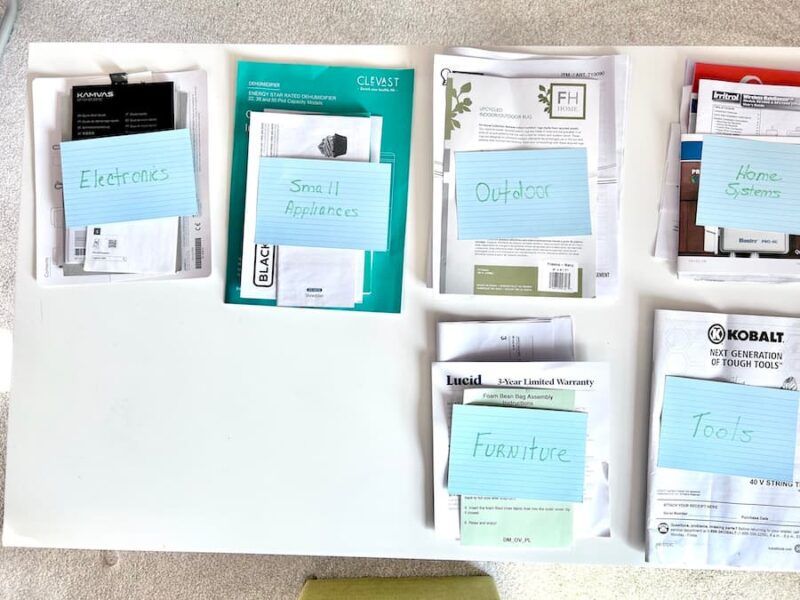
Your filing cabinet bulges with instruction booklets for every appliance you’ve ever owned, including some you no longer have. They seem important to keep, just in case.
Almost every manual is available online now. Manufacturers maintain digital copies on their websites, making paper versions unnecessary.
Create a digital folder for the few that might be hard to find online, and recycle the rest. Your filing system will thank you, and you’ll still have access to that blender troubleshooting guide when needed.





